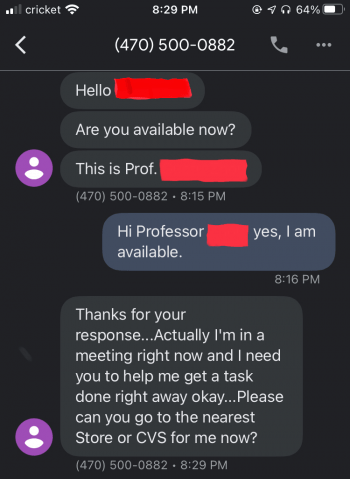Members of the WashU community are receiving phishing emails impersonating university leadership, including Chancellor Martin and Dean Perlmutter. These messages request changes to direct deposit information due to suspicious activity. Phishing scams often impersonate people in leadership positions to encourage a heightened sense of urgency in the recipient. Additionally, information about leaders is publicly available […]
Scam of the Month: Direct Deposit Phishing Scam Impersonating University Leadership



